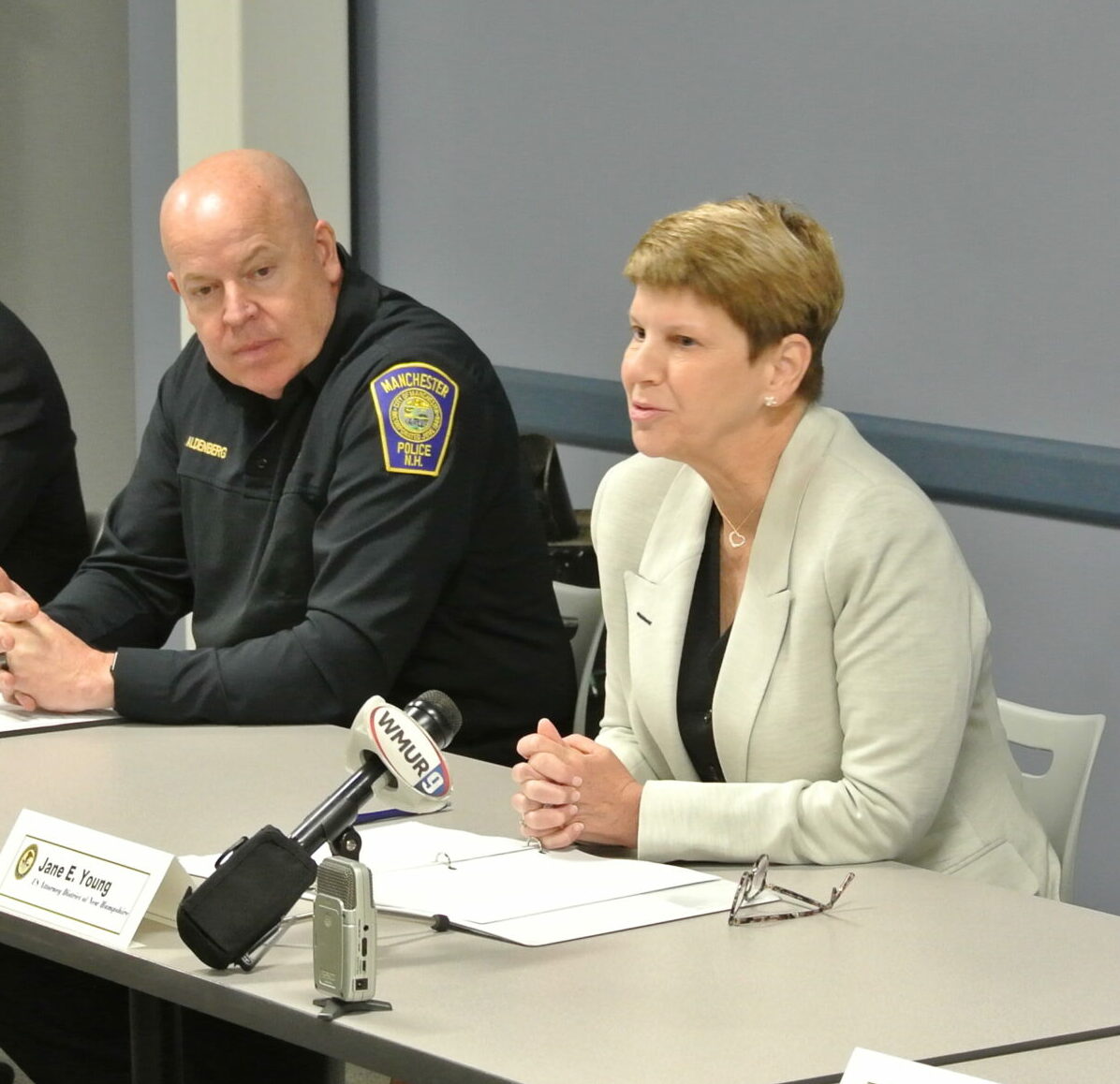The NH Opioid Crisis Comes From Mexico — And Massachusetts

When Granite State politicians talk about the opioid crisis and drugs moving across the border, they’re talking about Mexico.
But sit down with law enforcement fighting the flood of fentanyl into New Hampshire, and their “southern border” is Massachusetts.
Specifically Lawrence, Mass.
The drugs smuggled across the Mexican border and sold to gangs in Lawrence, largely from the Dominican Republic, make up the vast majority of illegal drugs abused in New Hampshire, according to New Hampshire’s U.S. Attorney Jane Young and Paul Spera, the assistant special agent in charge for the DEA.
“Those organizations have a connection with Mexican cartels, and so they’re able to get bulk quantities, distribution level quantities, kilogram quantities of the drugs,” Spera said. “They’re the organizations. They’re the drug distribution networks that have direct connections to the Mexican cartels.”
Synthetic drugs, like fentanyl and methamphetamine, are cheaper, deadlier, and more abundant than anything on the streets in decades. Young, who oversaw drug prosecutions as New Hampshire’s deputy attorney general, said the drug market in Lawrence is having a more devastating impact on the Granite State than in the past.
“There wasn’t this sort of free market in the next state that we see now. And so as time has evolved, what we see now are a lot of people who can pool money amongst other people, whether friends or community and go down and get –what I would tell you, having done this for the bulk of my career — a staggering amount of drugs.”

United States Attorney Jane Young says drugs supplied by Mexican cartels are flooding New Hampshire streets.
It used to be big news when police seized a kilo of cocaine, Young said. That amount, about 2.2 pounds, can sell for between $25,000 and $30,000. Now, a kilo of fentanyl can be had for about $6,000.
Spera said the drugs start out as precursor chemicals shipped directly from China to Mexican cartels with ports on the Pacific coast. Those chemicals make their way north to factories in Mexican warehouses and similar buildings, where the drugs are manufactured. Cartels are out of the agriculture business and no longer worry about weather, blight, pests, or growing seasons. They can make the drugs year round.
Once produced, the drugs are typically packed into vehicles headed to the United States — hidden in produce trucks, or in secret compartments of passenger cars. Cartels generally use people with legitimate reasons to cross the border to get the drugs and money back and forth, he said.
On the East Coast, in New York and in New England, Dominican gangs control the trade. They sell at street level, and they can set up somewhat sophisticated schemes to move the drugs. These gangs have been known to operate a delivery service, with the equivalent of a customer service rep taking orders during set business hours over the phone and arranging drop offs throughout the day. Spera said the operator taking the calls can be in the U.S., but just as often that person is in the Dominican Republic.
The people the Lawrence gangs sell to are rarely other gangs or major dealers, according to Young. Even when buying a kilo of fentanyl or bulk methamphetamine, they aren’t budding kingpins and wannabe Walter Whites. Typically, they are addicts selling to support their own habits, Young said.
“Today, it’s a lot of individuals who, because of their addiction, can go into the Merrimack Valley, buy significant quantities of drugs, and come back and flood the street. I don’t think that there’s another word to say that. They can flood it into the street for much smaller amounts of money, but with much more deadly consequences,” Young said.
Fentanyl now fuels New Hampshire’s opioid epidemic, with hundreds of overdoses each year. The number of fatalities is declining somewhat this year, though Young suspects the lull is because of how normalized opioid addiction has become. Many people now carry Narcan, which can stop an opioid overdose death.
Narcan can save lives. But without treatment, it also leaves people mired in the throes of prolonged addiction and misery, Young said.
“That is where we are now. Horrific.”
Spera worries about the growing market for methamphetamine. The meth coming in from Mexico is as much as 98 percent pure.
“It’s an absolute issue that’s coming into our state,” Spera said.
The amount of methamphetamine seized by the Manchester DEA office, which includes operations in neighboring states, more than doubled last year to 52 kilos. The drug is also linked to violence. Several officer-involved shootings in the past few years involved a meth user acting erratically and dangerously. The drug ratchets up the danger for communities and police, Spera said.
Spera’s worry is compounded by how openly the gangs operate. Recently, an undercover DEA agent stood on a Lawrence street corner waiting to meet a contact as part of an investigation. The agent had traded his typically clean-cut look for long hair, a scruffy beard, and street clothes. The kind of look that says, “I just got out of bed.” As he waited for the contact, a car pulled up, and the driver tossed out a bag containing a small amount of fentanyl and a card with a phone number.
“Let me know if you ever need anything,” the driver said before peeling off.




